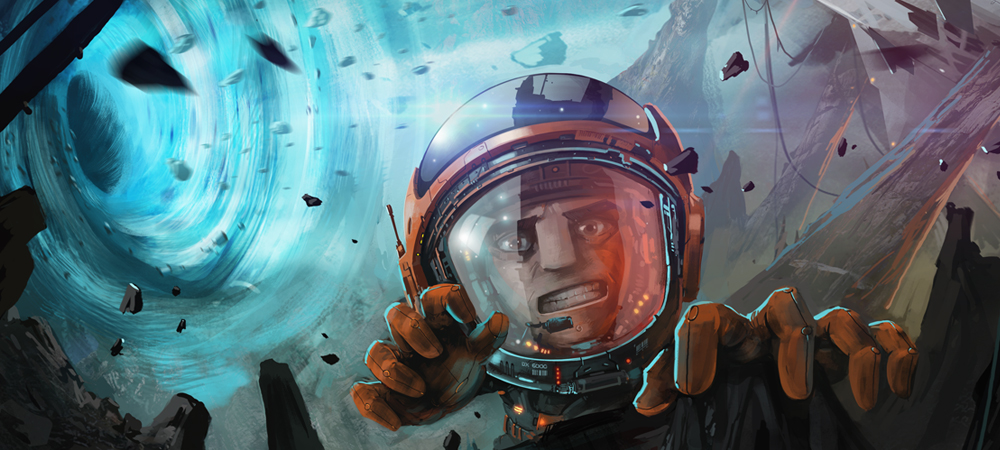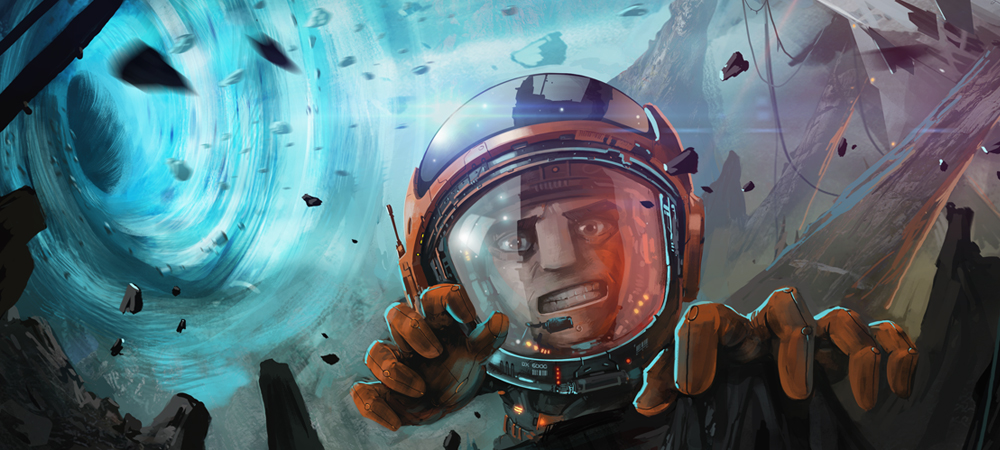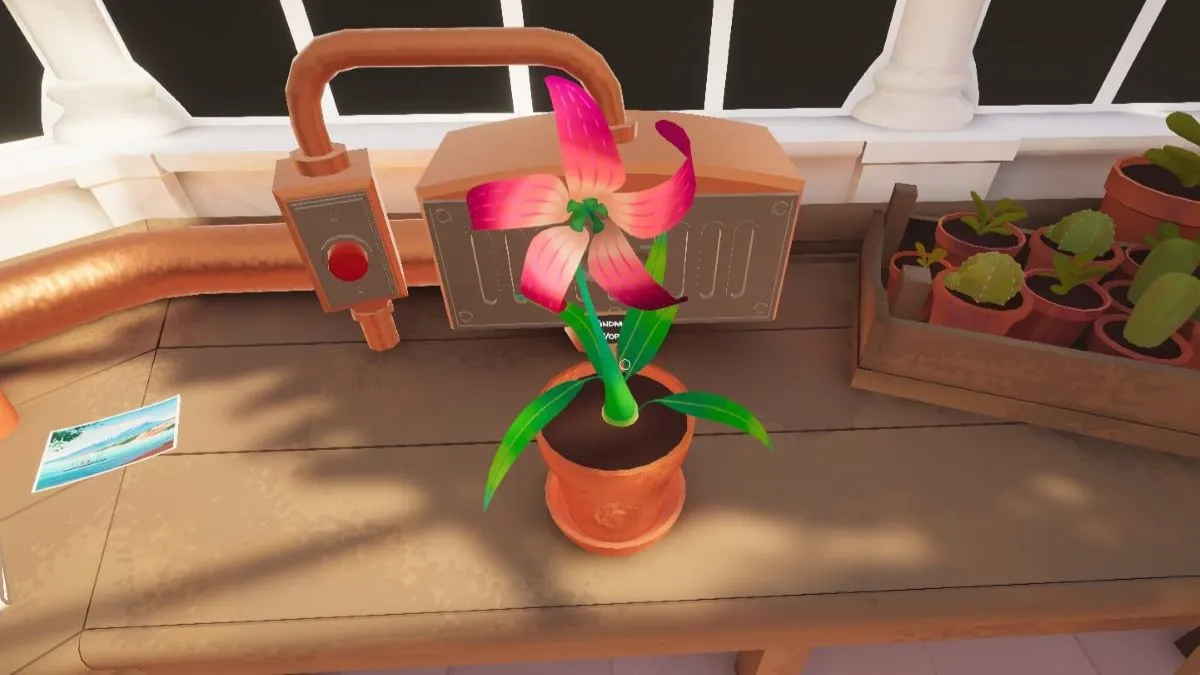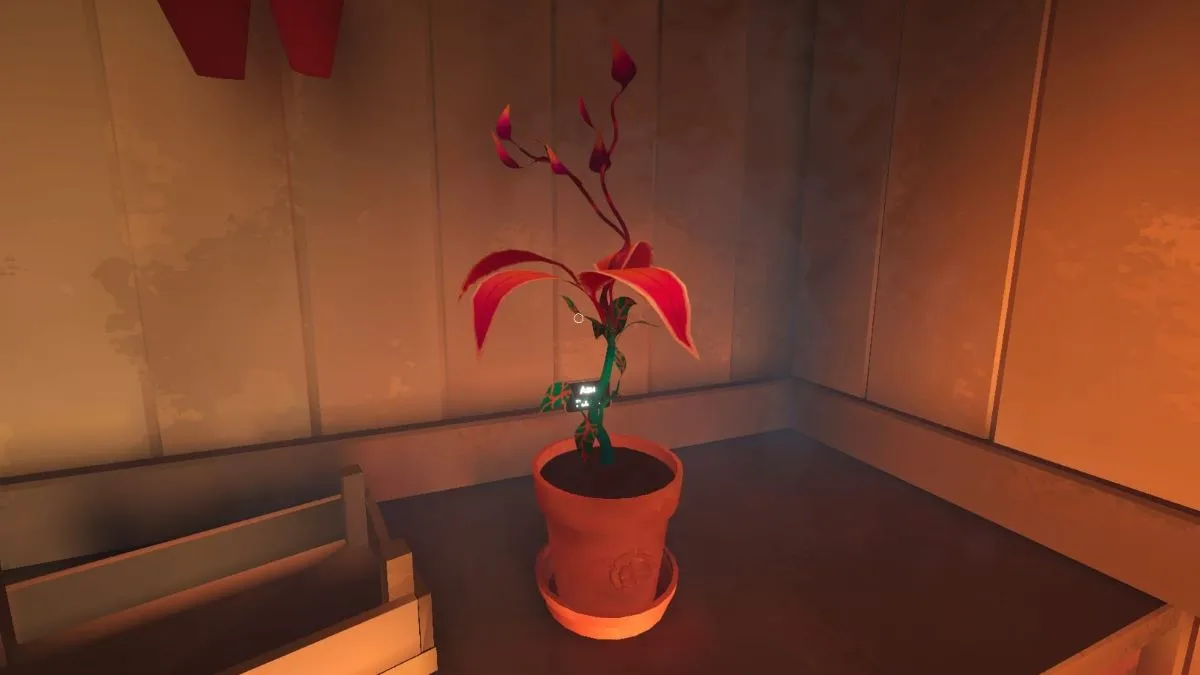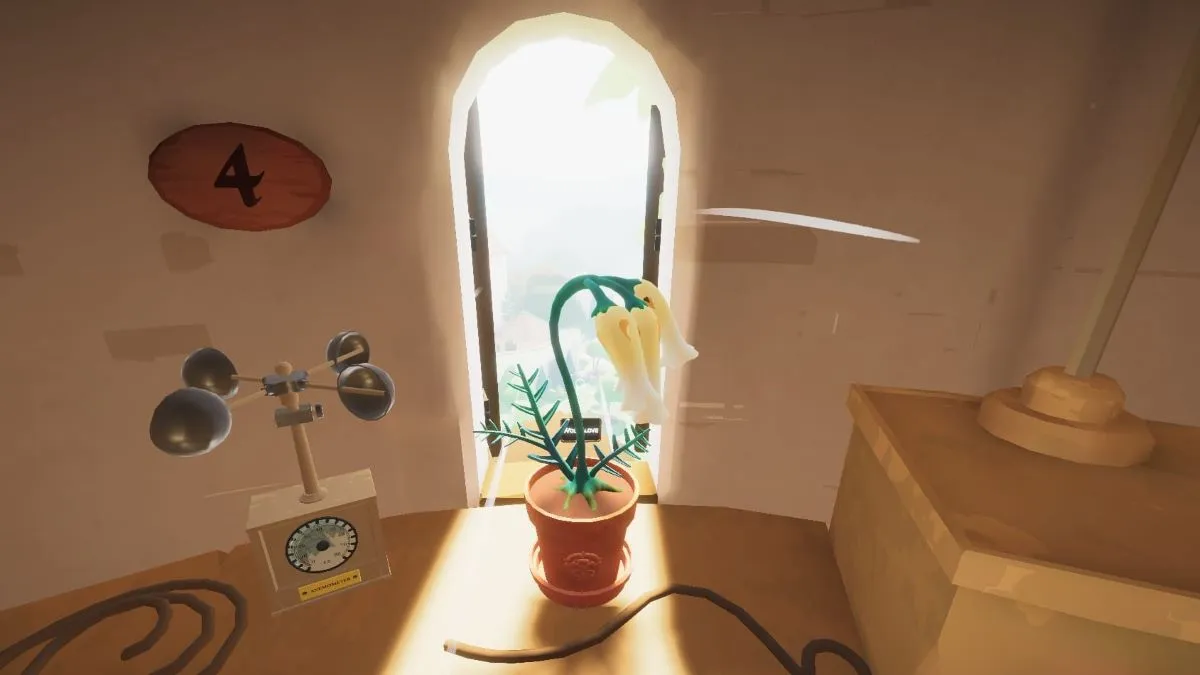In space, no one can hear you giggle
There certainly have been a lot of creative 2D platform games releasing over the last couple of months, enough that there seems to be some genuine competition in the genre. If you’re finding yourself in a position where it has become difficult to choose, allow me to make it easier.
Get Blackhole. Problem solved.

Blackhole (PC [reviewed], PS3, PS4, PS Vita, Xbox One)
Developer: FiolaSoft Games
Publisher: FiolaSoft Games
Released: February 27, 2015
MSRP: $14.99
Blackhole tells the story of the star ship Endura and its crew who, tasked with saving the Earth from impending doom, find themselves trapped inside a multi-dimensional entity. Only the ship’s most menial laborer and its artificial intelligence, Aluria, can rescue the crew, repair the Endura, and finish the mission. As “the coffee guy,” players will explore the entity’s varied dimensions, collecting “selfburns” (nanobots capable of fixing the ship) while looking for critical ship components and missing crewmembers.
The writing in Blackhole is surprisingly good, with an intriguing mystery behind the origins of Aluria and the true purpose of the Endura’s mission slowly revealed as the player progresses. Peppered liberally with jokes riffing on pop culture and sci-fi tropes, conversations with the crew are fully voiced with solid performances throughout. Occasionally corny but never dull, it scores big on charm despite suffering a bit in presentation due to its stage-based progression.
Each dimension in the game contains a central hub area with about ten stages to explore, each containing multiple selfburns to be collected and ending with levels in which a crewmember can be rescued and a missing ship part retrieved. And this is where the plot progression becomes a bit of a hassle, as finishing a level opens up a new dialogue with a crewmember (who is supposed to be locating the next part or crewmember), but the player is expected to travel back to the beginning of the hub area to speak with them and get an update on their progress.
It isn’t mandatory that you speak with crew members immediately, and the hub stages are designed to loop back to their origin point (so the player will get to them eventually if they just keep moving forward), but then those conversations just stack up and the player has to sit through them all right after the high of accomplishing a dimension’s most challenging stage. It kills the pacing and has the potential to turn what should be a light break from the action into a chore to be endured.

Blackhole offers puzzles and platforming through its central mechanic, gravity platforms. Touching a gravity platform rotates the world around the player, usually opening a new route through the same environment they just traversed. Every stage in the game features this mechanic as a central component, tucking selfburns into areas only accessible when approached from the proper stage orientation. Only one selfburn has to be collected from a stage to unlock the next (and there’s usually one that’s significantly easier to nab), which allows the player to progress past levels which present a struggle. Eventually, stages will have to be revisited to collect more selfburns, as each dimension has a minimum requirement before allowing progress to the next set of levels.
The gravity platform mechanic puts a tremendous demand on level design, and Blackhole delivers brilliantly in this respect. Every stage brings a new challenge that feels fresh and each dimension is unique, with its own stage elements that utilize gravity platforms in new ways. These include pulley systems, climbable walls, trampolines, and more, all of which function in different ways based on the stage orientation. The variety is broad and each environmental object is explored thoroughly, as levels squeeze every bit of potential use for them through the course of the dimension.

It’s a thinker’s game, but equally demanding of platform skills. Knowing how to reach a selfburn is one thing, while actually executing that plan can be quite another. Simply collecting the selfburns isn’t enough either; the player must also exit the level from where they started it and death returns the coffee guy to the stage entrance to start all over again. Only the selfburns collected in the best run count toward the total, meaning that to actually earn all of them requires a perfect, single run through the stage in which all selfburns are picked up and the exit reached. It often means executing a variety of difficult maneuvers, one after another, and completely finishing a stage feels like a real accomplishment.
Packed full of challenges in an endearing package, Blackhole is an excellent 2D platform adventure which succeeds in nearly every aspect of its design. It’s polished, visually attractive, and doesn’t skimp on variety or difficulty. While the story could be delivered in a more convenient fashion, its writing is of a quality rarely seen in action/puzzle titles, performed skillfully by its actors and accompanied by catchy stage music. In a time when there seems to be a sudden rush of 2D platform titles, Blackhole is a cut above the rest.
[This review is based on a retail build of the game provided by the publisher.]
